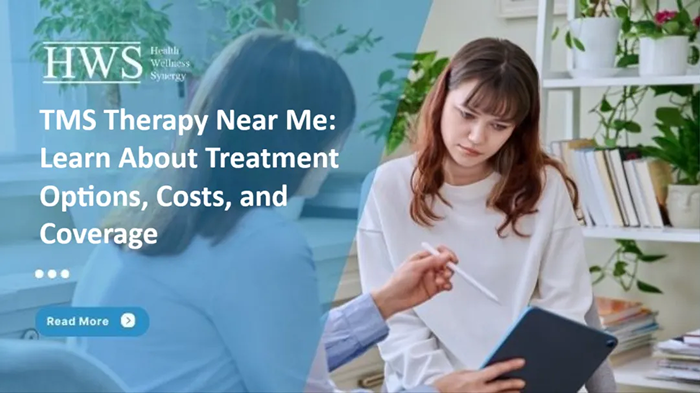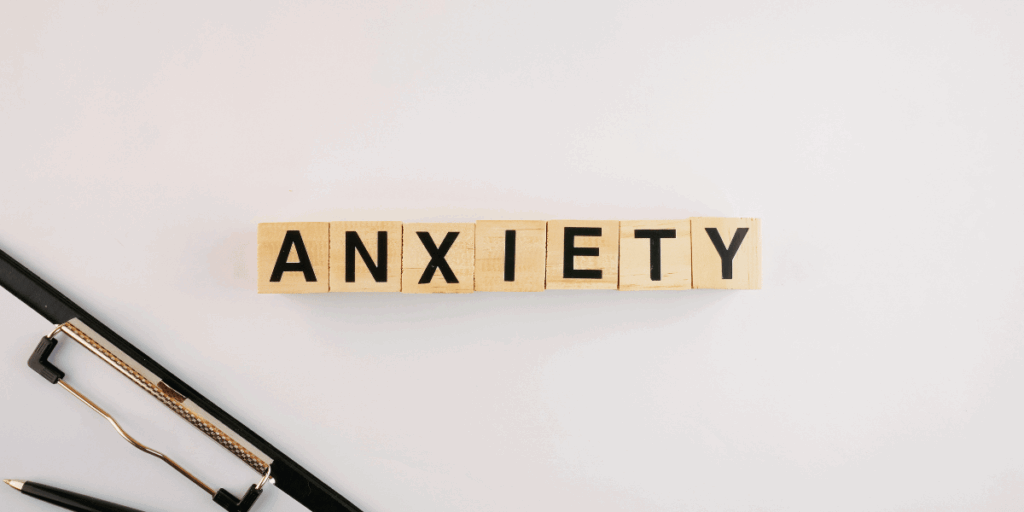
Transcranial Magnetic Stimulation (TMS) therapy is a non-invasive, FDA-approved treatment that stimulates brain regions linked to mood regulation. It has become one of the most trusted options for individuals living with treatment-resistant depression, but it is also being applied in cases of ADHD, bipolar disorder, and anxiety disorders.
During a session, a magnetic coil is placed on the scalp to deliver gentle pulses to the dorsolateral prefrontal cortex, an area often underactive in people with depression. Unlike medication, TMS requires no anesthesia, has minimal side effects, and allows patients to resume daily activities immediately.
As one of the established depression treatment centers in New Jersey, HWS Center offers advanced TMS therapy in New Jersey protocols delivered by experienced clinicians. Every treatment plan is personalized to match individual medical history, symptoms, and goals.
Searching for the Best TMS therapy near me is often about convenience, but the quality of the provider is just as important as accessibility. Clinics differ in technology, experience, and how well they tailor treatment to each patient.
At HWS Center, patients benefit from both modern equipment and a compassionate clinical team. The clinic is centrally located, serving clients from across New Jersey, and provides comprehensive care for depression, ADHD, and bipolar disorder. This makes it a trusted option for those looking for the best TMS therapy without compromising on quality.

TMS therapy costs typically range from $300 to $500 per session. A standard course involves 30 to 36 sessions across six to eight weeks, which places the total cost between $9,000 and $15,000 without insurance.
Factors that may influence total cost include:
Number of sessions recommended
Provider experience and expertise
Clinic location (urban areas may charge higher rates)
Technology and the type of TMS machine used
Additional consultation or follow-up fees
At HWS Center, patients receive a transparent breakdown of all costs upfront. Customized payment plans are also available to make care more accessible, ensuring finances do not stand in the way of recovery. This level of clarity helps patients better understand the overall TMS depression treatment cost and compare it with traditional long-term medication expenses.
In many cases, TMS is covered by insurance when used for treatment-resistant depression. Providers usually require proof that at least two antidepressant medications and psychotherapy have been attempted without success.
Coverage under Medicaid can vary from state to state. Some plans reimburse for TMS therapy, while others do not. The team at HWS Center helps patients with benefit verification, pre-authorization, and appeals if coverage is initially denied. This makes the process of navigating TMS covered by insurance less stressful for patients and their families.

Although most widely recognized for its role in depression treatment, TMS therapy has also shown promise for other conditions. with TMS for ADHD, studies highlight improvements in focus, attention, and impulsivity when TMS is included in treatment.
For bipolar disorder, TMS can reduce the frequency and severity of depressive episodes when combined with medication and psychotherapy. At HWS Center, clinicians stay updated on the latest research, ensuring patients receive evidence-based, safe treatment options that reflect the most current protocols in TMS therapy New Jersey care.
Research shows that TMS therapy produces significant results for many patients. Around 60 to 70 percent of individuals with treatment-resistant depression respond positively, and up to half achieve full remission. Patients often report improvements within the first two to three weeks of treatment.
While results vary depending on the condition, the growing evidence base highlights TMS as one of the most effective non-invasive therapies available today.
If you’ve been searching for TMS therapy near me, HWS Center provides the support, clinical expertise, and resources to help you move forward. From depression and ADHD to bipolar disorder, our team offers personalized care designed around your specific needs.
With transparent pricing, guidance on insurance coverage, and proven treatment protocols, you can access TMS therapy in a safe and supportive environment. Take the next step toward long-term wellness. Contact HWS Center today and discover how transcranial magnetic stimulation in New Jersey can help restore balance and resilience to your life.
Schedule a consultation! Provide your contact information below and we’ll get back to you as soon as we can.
Without insurance, the cost of TMS therapy usually falls between $9,000 and $15,000 for a complete treatment course. Some clinics also provide income-based payment structures or financing options to make care more affordable. This makes it easier for patients to plan around the cost of TMS without insurance while still accessing high-quality care.
Many patients begin noticing improvements in mood and energy within two to three weeks of starting treatment. Full benefits are generally experienced by the end of a 30–36 session program, though some patients continue to improve with maintenance sessions. These consistent outcomes highlight the value of TMS compared to traditional therapies with slower response times.
Yes. TMS therapy is often used alongside mood stabilizers and psychotherapy for bipolar disorder, particularly to reduce depressive episodes. Studies show that it can improve stability and enhance daily functioning. As research grows, TMS continues to stand out as one of the most promising options for complex cases that don’t respond to medication alone.
TMS is considered very safe, with most patients only reporting mild side effects such as scalp discomfort or headaches that resolve quickly. Unlike medications, it does not cause systemic effects such as weight gain, sexual dysfunction, or digestive issues. This makes it especially appealing for long-term treatment-resistant depression cases.
Look for clinics that provide personalized care, use modern equipment, and have experienced clinicians. At HWS Center, patients benefit from tailored treatment plans, insurance guidance, and supportive follow-up care, making it a trusted option for those seeking reliable results. Finding the best TMS therapy near me ensures you get both convenience and clinical expertise in one place.
A standard course of TMS therapy involves 30 to 36 sessions spread over six to eight weeks, followed by occasional maintenance sessions if needed. The exact number of treatments depends on the individual’s diagnosis and response rate. This structure allows patients to better understand the TMS depression treatment cost and plan their schedule around the therapy cycle.
Absolutely. TMS can be used alongside other treatments like talk therapy, medication, and lifestyle changes. In fact, many patients see the best outcomes when TMS therapy is part of a comprehensive, personalized care plan.
We use cookies to improve your experience on our site. By using our site, you consent to cookies.
Manage your cookie preferences below:
Essential cookies enable basic functions and are necessary for the proper function of the website.
Google reCAPTCHA helps protect websites from spam and abuse by verifying user interactions through challenges.
Google Tag Manager simplifies the management of marketing tags on your website without code changes.
You can find more information in our Cookie Policy and Privacy Policy.